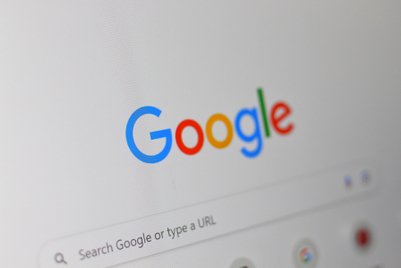
Politicians on both sides of the aisle are unhappy with Big Tech.
The catalyst for action was November 2020’s presidential election. It almost became a bipartisan issue, but for very different reasons. Democrats feel too much disinformation is spreading unchecked on platforms, while The GOP believes too many conservative voices are being silenced by the ‘liberal-leaning’ companies.
The House Antitrust Committee has spent 16 months investigating and written five bills that will regulate how these platforms fundamentally operate as businesses.
The legislation is very much a surgical strike rather than a carpet bomb on each Big Tech company. To be affected, you need to have at least $600 billion in annual sales or market capitalization, and at least 50 million monthly active US-based users, or 100,000 active US businesses, on the platform.
This narrows eligibility down to Apple, Amazon, Alphabet and Facebook. But how specifically will they be scrutinized? For that, we should delve into what each bill entails.
1) The American Innovation and Choice Online Act
Limits companies’ ability to give preference to their own products and services over rivals, and bans companies from using data collected from companies on their platforms to develop competitive products.
How it affects Big Tech:
Facebook couldn’t have tools that allow people to easily cross-post content on its own platforms, but not on rivals’. The law also challenges the dominance of Apple’s App Store and Amazon’s marketplace, which can today create their own versions of popular apps or products and give them better page positions. That would be a thing of the past.
2)The Platform Competition and Opportunity Act
Aims to stop monopolies that gobble up competition. It shifts the responsibility onto Big Tech to justify the legality of a merger, rather than the government to identify if it would be harmful.
How it affects Big Tech:
It stops the big boys from buying out smaller rivals, and could even signal their breakup. It would apply to many arms of Google, Apple or Amazon’s portfolio, but the most obvious is Facebook’s ownership of Instagram and WhatsApp.
3) The Ending Platform Monopolies Act
Targets Big Tech’s wide portfolios and presences across multiple industries, which gives them an unfair advantage. The bill would stop these companies from favoring their own services on their platforms.
How it affects Big Tech:
Apple’s iOS and Google’s Android phones are sold with native apps that can’t be uninstalled. This bill would allow users to delete such apps and use alternatives. It’s a double whammy for Google, as it could hit its search engine, too; currently Google Maps, reviews and Youtube are given top billing on Google searches. This bill would also prevent Amazon from assigning premium positions and the coveted ‘Buy Box’ to vendors who sign up to use its logistics and delivery services.
4) The Augmenting Compatibility and Competition by Enabling Service Switching Act (ACCESS Act)
Would require companies to build new interfaces that allow users to transfer their personal information between platforms. On Amazon, third-party sellers would be able to move listings and reviews to other marketplaces.
How it affects Big Tech:
At the moment, there aren’t too many viable challengers to Facebook and its 2.85 billion users. This bill would make building a rival a far more attractive proposition.
5) The Merger Filing Fee Modernization Act
Would allocate more government funds to departments that can pursue antitrust actions, such as the FTC and DoJ.
How it affects Big Tech:
If the first four bills are the bark, this is the bite to back it up.
An online revolution
These laws could lead to a revolution in who controls the internet. If Facebook can’t acquire rivals, for example, users may jump to new platforms that offer more control over data privacy, or niche communities and topics. Bespoke features certainly appeal to smaller but passionate audiences.
The same could apply to Amazon’s marketplace or Google’s search engines. Non-Apple or Android apps could grow, and sellers could create new marketplaces that take on Amazon.
But breaking up Big Tech could also make things worse for consumers. Take the Premier League soccer rights in the UK. Fans need three separate subscriptions to see every game, in the name of ‘consumer choice’. But perhaps people choose Apple because they love their hardware and apps. Google might be the most popular search engine because it’s the best. Choice doesn’t always equal better.
There’s a long way to go until these bills are signed into law. They may get watered down, or beefed up, in the Senate. What’s certain is that we are going to see a very different landscape that’s likely to weaken Big Tech’s dominance and embolden new challengers.
Steve Davies is head of communications and content at Conversocial.


.jpg&h=334&w=500&q=100&v=20250320&c=1)
.jpg&h=334&w=500&q=100&v=20250320&c=1)

.png&h=334&w=500&q=100&v=20250320&c=1)

.png&h=334&w=500&q=100&v=20250320&c=1)

.jpg&h=334&w=500&q=100&v=20250320&c=1)





.jpg&h=268&w=401&q=100&v=20250320&c=1)



